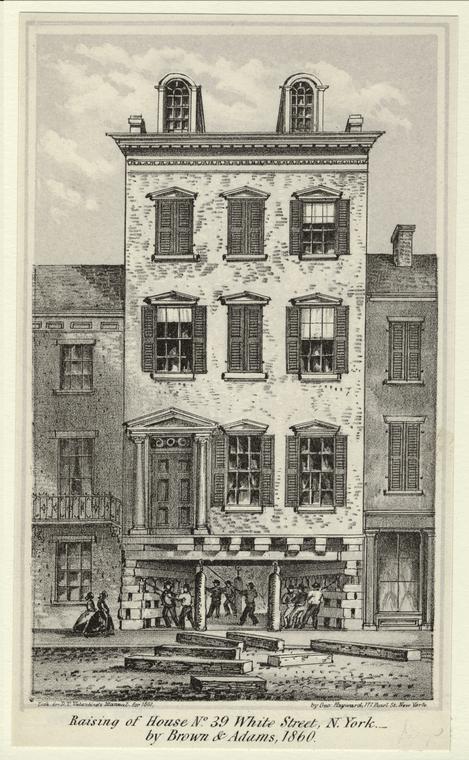
Many units of New York State militia saw service in the American Civil War, after being activated into federal service by President Abraham Lincoln.
![View Smaller Image [Peddlers, New York City, 1860's.]](http://images.nypl.org/index.php?id=806202&t=w)
The activation of state militia by President Abraham Lincoln led to some conflict with State authorities in command of the units:
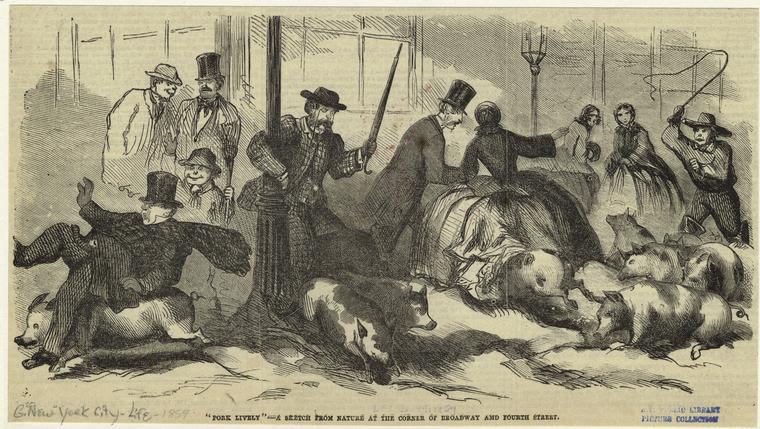
After Lincoln called out all the militia in April 1861, the Republican Wide Awakes, the Democratic "Douglas Invincibles", and other parade groups volunteered en masse for the Union army. In 1864, reports of political
 rallies note that "The Northwestern Wide Awakes, the Great Western Light Guard Band, and the 24th Illinois
rallies note that "The Northwestern Wide Awakes, the Great Western Light Guard Band, and the 24th Illinois Infantry" were at a Chicago meeting. On November 5, the Chicago Union Campaign Committee (the name of Lincoln's party that year) declared,
Infantry" were at a Chicago meeting. On November 5, the Chicago Union Campaign Committee (the name of Lincoln's party that year) declared,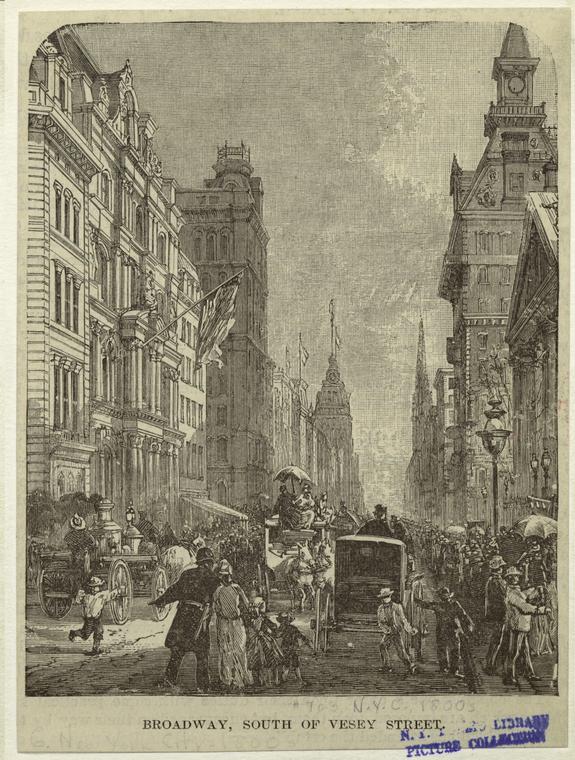
- "On Tuesday next the destiny of the American Republic is to be settled. We appeal to Union men. We appeal to merchants to close their stores, manufacturers to permit their clerks and laborers to go to the polls, the Board of Trade to close, the Union Leagues and Wide Awakes to come out. The rebellion must be put down.
- With the advent of the Civil War in April, 1861, the 14th regiment saw its first war service in guarding the Brooklyn Navy Yard. By mid-April of that year, the "Brooklyn Chasseurs" were ready to leave New York for Washington D.C.
The 14th Regiment New York State Militia (also called the 14th Brooklyn) was a volunteer militia regiment from the City of Brooklyn, New York. It is primarily known for its service in the
American Civil War from April 1861 to May 1864, although it later served in the Spanish American War and World War I (as part of the 106th Regiment).
In the Civil War, the regiment was made up of a majority of abolitionists from the Brooklyn area. It was led first by Colonel Alfred M. Wood and later by Colonel Edward Brush Fowler.
 The 14th Brooklyn was involved in heavy fighting, including most major engagements of the Eastern Theater. Their engagements included the First and Second Battles of Bull Run, the Battle of Antietam,
The 14th Brooklyn was involved in heavy fighting, including most major engagements of the Eastern Theater. Their engagements included the First and Second Battles of Bull Run, the Battle of Antietam, Fredericksburg,
Fredericksburg,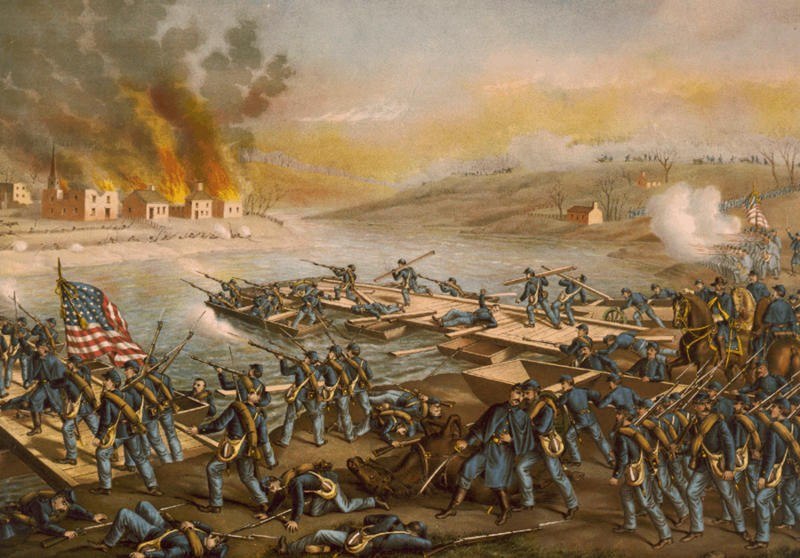 Chancellorsville, Gettysburg
Chancellorsville, Gettysburg , The Wilderness, and Spotsylvania Court House.
, The Wilderness, and Spotsylvania Court House.  During the war, the men of the 14th Brooklyn were well known by both armies and throughout
During the war, the men of the 14th Brooklyn were well known by both armies and throughout 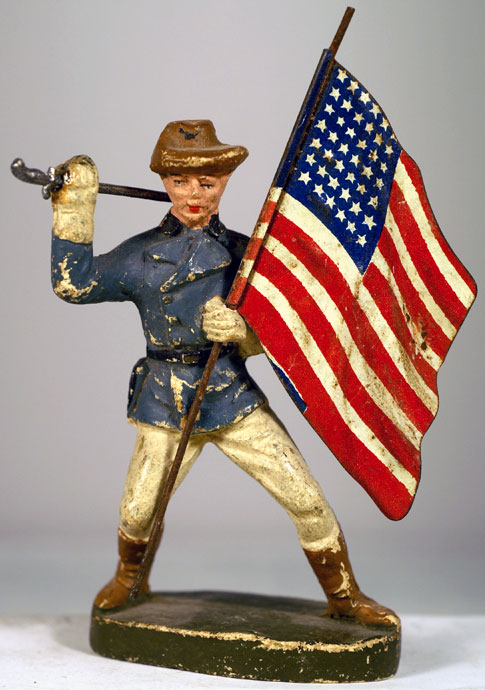 the country for their hard drill, hard fighting, and constant refusal to stand down from a fight. During their three years of service they never withdrew from battle in unorderly fashion.
the country for their hard drill, hard fighting, and constant refusal to stand down from a fight. During their three years of service they never withdrew from battle in unorderly fashion.On December 7, 1861, the State of New York officially changed the regiment's designation to the 84th New York Volunteer Infantry (and its unit histories are sometimes found under this
designation). But at the unit's request and because of the fame attained by the unit at First Bull Run, the United States Army continued to refer to it as the 14th.
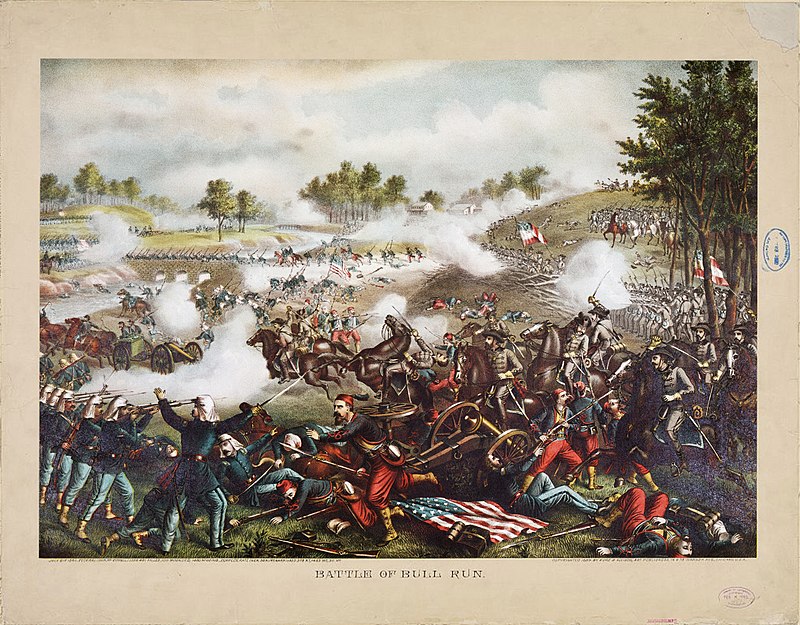
The 14th Brooklyn received its nickname, the "Red Legged Devils", during the First Battle of Bull Run. Referring to the regiment's colorful red trousers as the regiment repeatedly charged up Henry House Hill,

Confederate General Thomas J. "Stonewall" Jackson yelled to his men, "Hold On Boys! Here come those red legged devils again!"
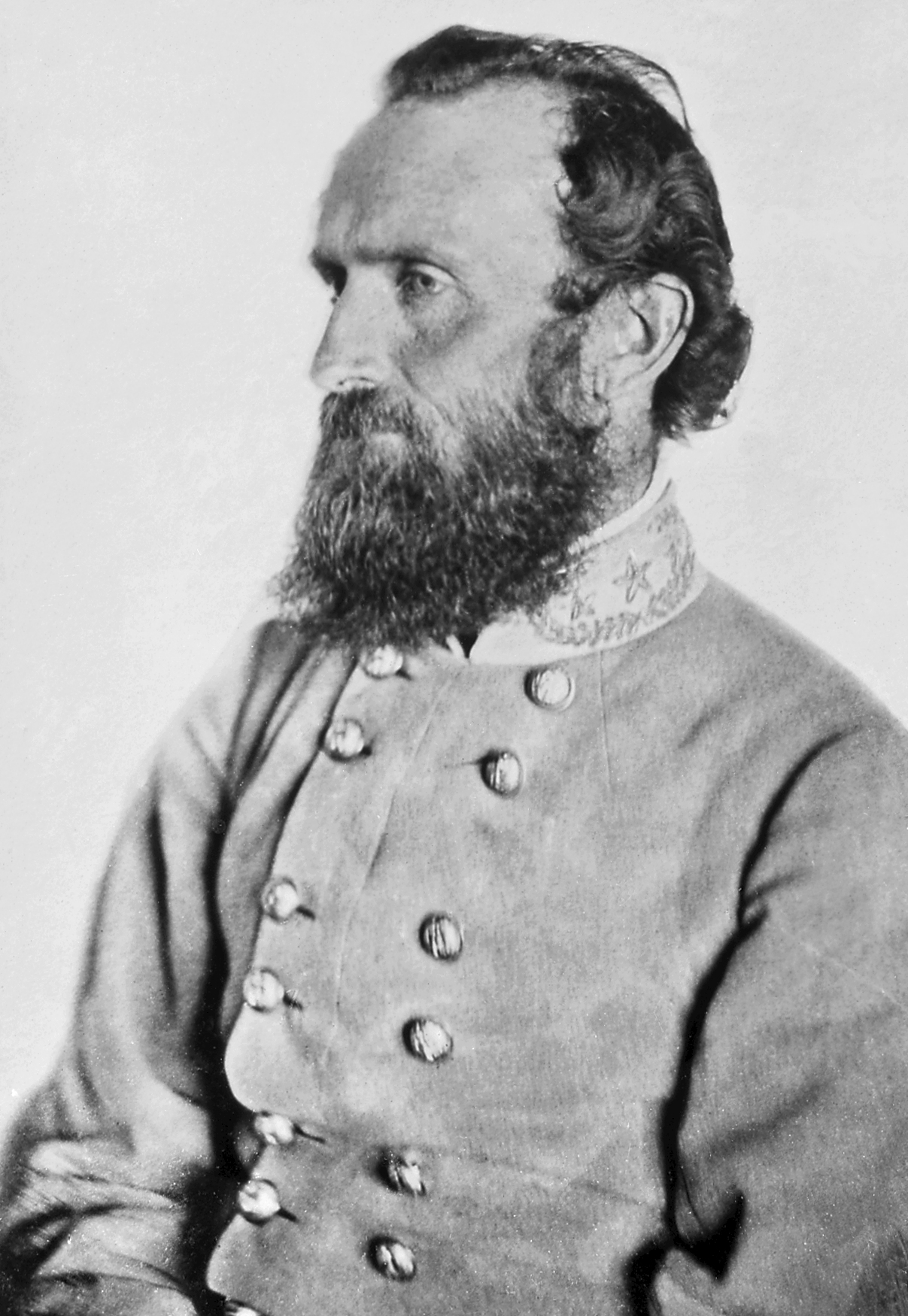
In the early part of the war, when the 14th Brooklyn was in General Walter Phelps' brigade, the brigade was named "Iron Brigade". It would later to become known as the "Eastern Iron Brigade"
 after John Gibbon's Black Hat Brigade was given the name "Western Iron Brigade".
after John Gibbon's Black Hat Brigade was given the name "Western Iron Brigade". 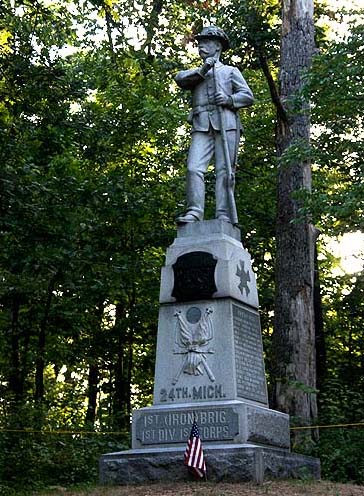 At the conclusion of the war, all members of
At the conclusion of the war, all members of  the "Eastern" or "First" Iron Brigade were given medals for their service within the Iron Brigade.
the "Eastern" or "First" Iron Brigade were given medals for their service within the Iron Brigade.Colonel Alfred Wood advised the Honorable Governor Morgan
 that the regiment was prepared to march and had accepted a three year federal enlistment. However, the governor
that the regiment was prepared to march and had accepted a three year federal enlistment. However, the governor  would not issue orders for the regiment to leave New York. While encamped at Fort Greene Park in Brooklyn ,
would not issue orders for the regiment to leave New York. While encamped at Fort Greene Park in Brooklyn , Colonel Wood and Congressman Moses O'Dell went to see President Lincoln to secure orders for the regiment to march to Washington. President Lincoln lost no time in issuing those orders to the 14th Brooklyn. When Governor Morgan learned that the regiment was preparing to march, he telegraphed Colonel Wood and inquired "by what authority" did he move his regiment, Colonel Wood coolly replied, "By the authority of the President of the United States
Colonel Wood and Congressman Moses O'Dell went to see President Lincoln to secure orders for the regiment to march to Washington. President Lincoln lost no time in issuing those orders to the 14th Brooklyn. When Governor Morgan learned that the regiment was preparing to march, he telegraphed Colonel Wood and inquired "by what authority" did he move his regiment, Colonel Wood coolly replied, "By the authority of the President of the United States
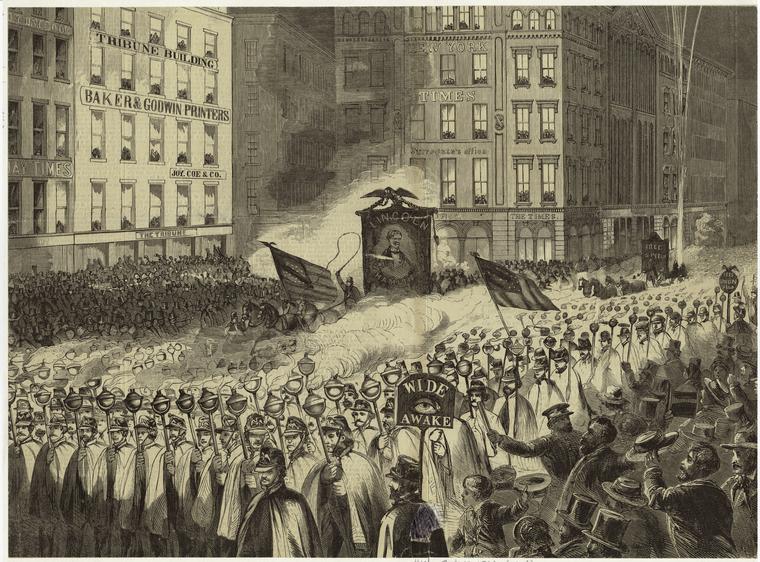


No comments:
Post a Comment